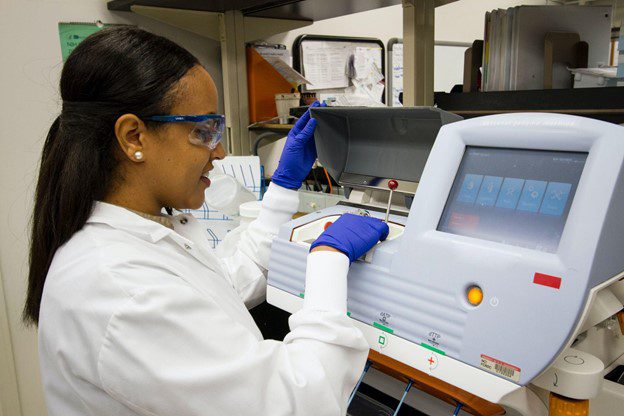To increase access and efficiency of sickle cell clinical trials, UT Southwestern has become a founding member of the new Sickle Cell Disease Clinical Trials Network, which focuses on bringing treatments and curative options to patients.
Sickle cell disease is an inherited blood disorder that affects red blood cells, or hemoglobin, to carry oxygen to the cells throughout the body.
Affecting mostly African-Americans, Hispanics, and people of Caribbean descent, an estimated 1,000 children are born with the disease in the U.S. One in 12 African-Americans has the sickle cell trait.
The American Society of Hematology, which created the network, is the world’s largest professional society of clinicians and researchers focusing on blood diseases. Under the leadership of Patrick Leavey, M.D., Professor of Pediatrics at UTSW, a collaborative North Texas clinical trial unit was developed.
Alecia Nero, M.D., Associate Professor of Internal Medicine and Pediatrics, said the push to bring clinical trials to new heights is needed. Currently, there are only four drugs used to treat sickle cell disease.
“Sickle cell disease, being a relatively rare disease, struggles with keeping significant trials open because it takes so long to get patients. By creating these networks, you can then enroll the patients to get the answer that you’re after,” Nero said.
Nero, who treats pediatric sickle cell patients at Children’s Medical Center Research Institute at UT Southwestern, is Director of the Transition Sickle Cell Program, which helps patients successfully transfer from pediatric care to adult care.
She is also the adult sickle cell program medical director and cares for patients at Clements University Hospital and Parkland.
Nero and Leavey said they hope the network will bring significant advances against the disease by opening new collaborations with pharmaceutical companies.

